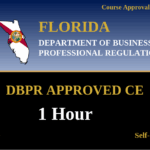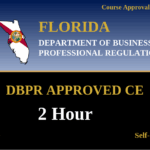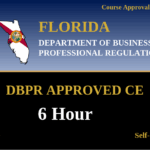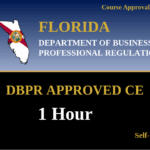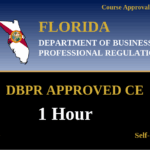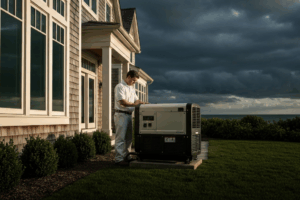
Becoming an Electrical Contractor in Florida: A Guide
Why Florida is a Prime Market for Electrical Contractors
Florida’s rapid population growth and booming construction sector are creating unprecedented demand. Projections from the Florida Department of Economic Opportunity indicate approximately 10.8% growth for 2022-2030 for electricians (SOC 47-2111). This isn’t just about wiring new homes; the market is diversifying. Key growth areas include:
-
- Renewable Energy: The surge in solar panel installations and the need for EV charging stations require specialized electrical expertise.
- High-Tech Facilities: Florida is becoming a hub for data centers, which have immense and complex power requirements.
- Commercial & Residential Growth: New healthcare facilities, multi-family apartment buildings, and mixed-use developments are constantly breaking ground, all needing extensive electrical work from the ground up.
For ambitious electricians, these trends signal more than just job security; they represent a golden opportunity. By starting an electrical business in Florida, you can capitalize on this demand and build a valuable enterprise.
The Two Paths to Your Florida Electrical Contractor License
Before you can legally operate your own business, you must be licensed by the Florida Department of Business and Professional Regulation (DBPR). The state offers two distinct paths for electrical contractors, and choosing the right one is the first critical decision you’ll make. The choice is between becoming a Registered Electrical Contractor or a Certified Electrical Contractor.
The Registered Electrical Contractor: Mastering Your Local Market
A Registered Electrical Contractor license is ideal for professionals who plan to operate within a specific local area, like a single county or city. This license is based on passing a local competency exam and receiving a “competency card” from that jurisdiction.
To obtain this license, you must:
- Hold a valid certificate of competency (competency card) from a local municipality in Florida that requires an exam or equivalent demonstration of competency, per Florida Statute 489.513.
- Pass the state-required electrical business and finance exam.
- Provide proof of financial stability and obtain the necessary liability and workers’ compensation insurance.
The key distinction is that you do not need to take the statewide technical exam. Your work is confined to the specific geographic areas where you are registered. This can be a great route for a journeyman electrician in Florida who has built a strong reputation in their hometown and wants to serve their local community.
The Certified Electrical Contractor: Unlocking Statewide Opportunity
For those with ambitions to operate across Florida, the Certified Electrical Contractor license is the ultimate goal. This license grants you the authority to perform electrical work anywhere in the state, from Pensacola to Key West.
Securing a Florida electrical contractor license at the certified level is more rigorous. According to the Electrical Contractors’ Licensing Board, you must meet one of several demanding experience requirements as outlined in Florida Administrative Code 61G6-5.003(1):
- Three years of management experience in the trade within the last six years.
- Four years of experience as a foreman, supervisor, or contractor in the trade within the last eight years.
- Six years of comprehensive training, technical education, or broad experience within the last 12 years, which must include at least two years of active experience as a foreman or equivalent.
- A combination of the experience types listed above totaling six years within the last 12 years.
- A bachelor’s degree in electrical engineering from an accredited four-year college and one year of proven experience in the trade.
Applicants are required to submit verified proof of this experience, such as affidavits from employers, as mandated by the Electrical Contractors’ Licensing Board. In addition to proving your experience and financial responsibility, you must pass both parts of the state’s rigorous electrical contractor exam Florida. While Florida doesn’t have a statewide license specifically titled ‘master electrician,’ the experience required for a certified contractor is equivalent to what many other states consider a master level.
The Examination Gauntlet: What to Expect
The path to becoming a certified contractor runs through two challenging exams administered through Pearson VUE on behalf of the Florida DBPR electrical contractor board.
Technical/Safety Exam: This is a comprehensive, open-book test based heavily on the National Electrical Code (NEC). It assesses your deep knowledge of electrical theory, safety protocols, and complex installations. Understanding how to apply NEC standards is crucial, whether you’re tackling properly labeling panelboards per NEC 2023 or designing systems with energy management.
Business and Finance Exam: Many skilled electricians are unprepared for this part of the test. It has nothing to do with bending conduit and everything to do with running a legitimate business. Topics include lien laws, accounting principles, contract management, and insurance requirements. Passing this exam is mandatory for both Registered and Certified contractors.
Beyond the License: Setting Up Your Business
Passing your exams is a major milestone, but it’s not the finish line. Next, you must formally establish your business.
- Business Structure: Work with an accountant to decide whether an LLC or an S-Corp is right for your goals.
- Insurance: Secure the required general liability and workers’ compensation policies. The electrical contractor insurance requirements in Florida are strict and non-negotiable.
- Continuing Education: Your license must be renewed every two years. This requires completing 11 hours of Florida electrical continuing education. Per Florida Administrative Code 61G6-9.001 and Florida Statute 489.517, this must include 7 hours of board-approved technical content (which can cover various topics, with at least 1 hour specifically on NEC updates), 1 hour of workers’ compensation, 1 hour of workplace safety, 1 hour of business practices, and 1 hour of Florida laws and rules. You can often find approved online electrical courses to fulfill these requirements.
It’s also important to understand the rules around electrical license reciprocity Florida. The state does not have simple reciprocity; instead, it offers “endorsement” on a case-by-case basis. Per Florida Statute 489.511(3), this is possible if your out-of-state license was obtained through what the board determines to be a “substantially similar exam” and the license has been active for at least one year immediately preceding the application. However, endorsement is not guaranteed, requires board approval, and may involve taking additional Florida exams if the out-of-state exam is not deemed substantially similar.
Seizing the Opportunity in the Sunshine State
Becoming a licensed electrical contractor in Florida is a challenging but incredibly rewarding journey. It elevates you from an employee to a business owner, giving you the power to build a team, pursue high-value projects, and shape your own future. The demand for skilled electrical leaders has never been higher, fueled by new technologies and a booming population. From your foundational training at an electrician school or through an apprenticeship program like those recognized by NCCER, every step has been leading to this. By understanding the licensing process and preparing for the business realities ahead, you can successfully launch and grow your own electrical contracting company in one of the nation’s most dynamic markets.
Ready to take the next step in your professional development? Stay current on safety standards and explore advanced code topics. Browse our courses today to stay ahead of the curve.
Frequently Asked Questions
What’s the difference between a journeyman and an electrical contractor in Florida?
In Florida, journeyman electrician licenses are typically issued at the local (county) level and allow an individual to perform electrical work under the supervision of a contractor. Some counties may also have their own “master” electrician designations, but these are also local. An electrical contractor (either Registered or Certified) is licensed by the state to own and operate an electrical business, pull permits, and employ other electricians, which supersedes local designations for business operations.
How long does it take to become an electrical contractor in Florida?
The timeline depends on your experience. To become a Certified contractor, you need a minimum of three to six years of specific experience, depending on the type (e.g., management vs. foreman). This is in addition to any time spent as an apprentice or journeyman. Once you meet the experience requirements, you must factor in time to study for and pass the state exams.
Can I use my out-of-state electrical license in Florida?
Not directly. Florida does not offer automatic reciprocity for electrical licenses. However, you may be eligible for “licensure by endorsement.” According to Florida Statute 489.511(3), this is possible if you have passed a substantially equivalent examination, have held the license for at least one year immediately before applying, and can meet other state requirements. The Florida Electrical Contractors’ Licensing Board reviews these applications on a case-by-case basis.
Florida Continuing Education Courses
Explore our board-approved continuing education courses for Florida professionals:
View CE RequirementsFlorida 1 hour course on workers’ compensation
Florida 1 hour course on workplace safety
Florida 2 hours course on false alarm prevention
Florida 6 hours electrical CE course (Technical)
Florida 1 hour business practices course
Florida 1 hour course on electrical laws and rules
Disclaimer: The information provided in this educational content has been prepared with care to reflect current regulatory requirements for continuing education. However, licensing rules and regulations can vary by state and are subject to change. While we strive for accuracy, ExpertCE cannot guarantee that all details are complete or up to date at the time of reading. For the most current and authoritative information, always refer directly to your state’s official licensing board or regulatory agency.


